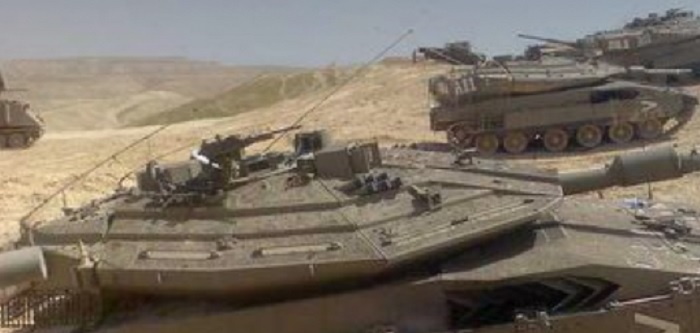
The drama surrounding the election of the 46th President of the United States is approaching its logical conclusion, and looking at the data from the census in the United States [the counting of votes is still going on] – the candidate of the Democratic Party and former Vice President of the United States Joe Biden has more than real chances to win the election. In fact, the question is no longer whether, but when.
Israel is worried about a war with Iran if Joe Biden wins the presidential vote, learned BulgarianMilitary.com. Such a statement has been sneaking into the Israeli media in recent hours, and was even officially made by Israeli Minister of Settlements Tsakhi Haneghi, who was quoted by The Jerusalem Post. The reason for such a statement are the repeated speeches of Joe Biden, who wants to return to the nuclear deal with Iran. However, this is a problem for Israel, as Iran is no longer under an arms embargo and it is assumed, and it is even certain, that the Islamic Republic will strengthen its defense capabilities.
It is for this reason that Israeli Population Minister Tsakhi Hanegi claims that a “violent clash” between Iran and Israel is entirely possible, and it is possible that this clash will lead to the use of “dangerous weapons”. Hanegi recalls that President Trump has another more appropriate and effective approach to peace – the use of economic sanctions as a lever to influence the lives of Iranians and the development of the Iranian military industry. And let’s face it, this lever works well, and not just in Iran.
We remind you that new economic sanctions were imposed by the United States on Iran this September, which I responded to as a result of the lifting of the arms embargo by the United Nations, which even condemned these American actions. Russia also did not fail to condemn the new measures against Iran.
Iran was under the restrictions of the so-called The joint comprehensive action plan, which controlled the nuclear development of the Islamic State but was not supported by the United States, which repeatedly compared it to an “Iranian instrument of violence and terror”, so in 2018 Donald Trump decided to leave the agreement.
What is Joint Comprehensive Plan of Action (JCPOA)?
Iran and the Six of international negotiators reached a historic agreement in July 2015 to resolve the long-standing problem of the Iranian atom. The months-long negotiations culminated in the adoption of a joint comprehensive plan of action (JCPOA), the implementation of which will completely remove Iran’s previously imposed economic and financial sanctions by the UN Security Council, the United States and the European Union.
The agreement also provided that the arms embargo will be lifted from Iran within 5 years, arms deliveries are possible earlier, but only with the permission of the UN Security Council. The deal in its original form did not survive even three years: in May 2018, the United States announced a unilateral exit from it and the restoration of stringent sanctions against Tehran.
Over the years, the military embargo has developed a successful military-industrial complex in Iran
We cannot ignore the fact that the imposed military embargo on Iran has left its positive imprint on the military industry in the country. Iran has been forced to develop its military industry to new levels, and many military experts believe they have achieved relatively excellent results. Tehran produces various cruise missiles for its needs. Only about half a year ago, mass arming of Iranian submarines with Jask-2 cruise missiles began.
In the field of aviation and modern technology, Tehran produces at least two types of drones, the most notable of which is the strategic and attacking drone Fotros. Last year, the Islamic country introduced to the world its latest anti-aircraft missile system Khordad 15. Its performance is not as impressive as in Western countries or the Russian S-400, but according to unofficial information, one system detects five targets, and the system itself is deployed in combat standby for no more than five minutes.
Not to be overlooked is the fact that Iran has recently sold its anti-aircraft missile systems to Syria. To some extent, Iran has also developed its military genius with regard to armored vehicles. at this stage does not produce such, but produces better armor for Russian tanks T-72 and T-90. The fact is that it sells such refurbished Russian tanks in Africa.
Last but not least, the Islamic State is trying to focus on the production of fighter jets. Last month, it managed to launch its first training two-seater fighter of the third generation. But in this case – a number of Iranian military experts commented that the fighter in question would be useful only for training new pilots.
Let us not forget the development of Iran in the field of S4ISR. Earlier this year, the available French Mirage 1 aircraft were equipped with radar developed at Tehran’s research laboratories. Of course, this is not all, but in general, Iran has managed to develop its military industry and meet the needs of its country. If the military embargo falls, Tehran will spend billions on new weapons, and it will not be surprising if the new technologies do not serve future Iranian developments.
 Eurasia Press & News
Eurasia Press & News



